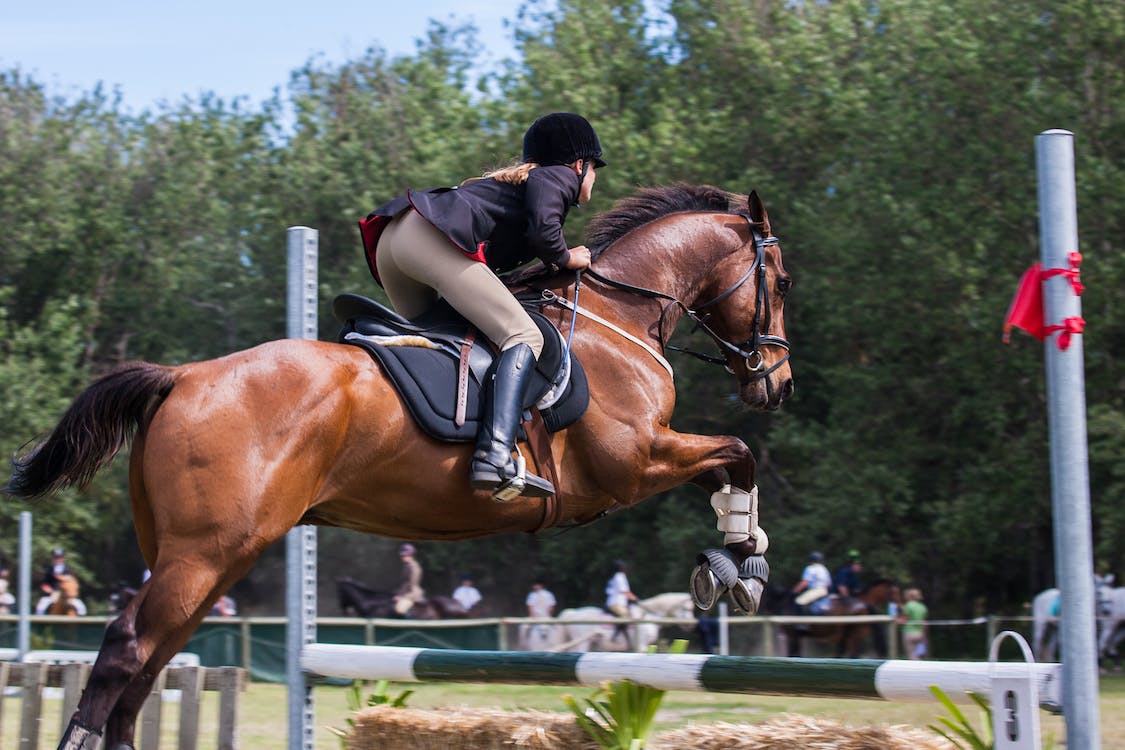Betting is one of the most important aspects of horse racing. While there are certainly fans who watch horse races solely for the beauty of the sport, there are just as many (if not more) who are lured into the fandom by the prospect of making a few easy bucks.
However, the betting system can seem inaccessible and confusing to newcomers. Not only is picking a winner a daunting task in and of itself, but the terminology for different types of bets can be unfamiliar.
Sure, there are standard win, place, and show bets, in which a punter selects a horse they think will be a top-three finisher. While those wagers are straightforward, they do not have nearly the potential profit that multi-horse bets- called “exotics”- do.
Let’s take a look at two common types of exotic wager: the exacta and the trifecta.
What Is An Exacta?
An exacta- sometimes called a perfecta- is an exotic wager in which a bettor selects the top two finishers.
To place a straight exacta, the bettor selects one horse to finish first, and another horse to finish second. The horses must finish first and second in the predetermined order for the bettor to be able to cash in a ticket.
In a boxed exacta, however, the order of finish does not matter as long as one of the chosen horses wins and the other finishes second. This type of bet is more expensive to make since the bettor is essentially wagering on two separate possible outcomes.
A horse betting calculator can be a handy tool to help you weigh potential payouts against the cost of your bet.
Examples
In this year’s Kentucky Derby, the longest shot on the tote board, Rich Strike, won. The favorite, Epicenter, finished second.
If someone placed a straight exacta bet on number 21 (Rich Strike) and number 3 (Epicenter), they would have made a pretty tidy profit; a two dollar investment had a payoff of over four thousand. However, placing a straight exacta bet on number 3 (Epicenter) followed by number 21 (Rich Strike), they’d have walked away with nothing but frustration.
A person who placed a boxed exacta on number 21 (Rich Strike) and number 3 (Epicenter) would have won either way.
What Is A Trifecta?
A straight trifecta is similar to a straight exacta, except that it involves choosing the finishing positions of the top three horses. Boxing a trifecta, like boxing an exacta, means that the horses can finish in any order.
You may choose to “key” a horse in your exotic bet, meaning that you select a particular horse to finish first, but the others in your trifecta may finish in any order.
There is also the option for a “wheel” meaning that you would select two horses in your trifecta and then have the option for “all other horses” in the remaining slot. A partial wheel allows you to pick some of the horses in the field and leave others out.
Examples
Looking again at the Kentucky Derby, a winning straight trifecta would include having number 21 (Rich Strike) first, number 3 (Epicenter) second, and number 10 (Zandon) third. A fifty-cent trifecta would have netted a bettor a payout of over seven thousand, looking at the chart linked above.
A successful bettor could have boxed a trifecta by simply selecting number 3 (Epicenter), number 10 (Zandon), and number 21 (Rich Strike) to finish in any order. They also might have keyed number 21 (Rich Strike) over the other two.
A wheel bet is a lot more complex, and potentially a lot more expensive, but there are more opportunities to win. An example of a full wheel would involve keying number 21 (Rich Strike) in the win spot and numbers 1-20 in place and show. A partial wheel could have involved a bettor keying number 21 (Rich Strike) for the win, number 3 (Epicenter) for the place, and, perhaps, numbers 4, 10, and 13 (Summer is Tomorrow, Zandon, and Simplification respectively) for the show.
There are many types of bets, but ultimately the best bet is any one you can cash in for a profit.
